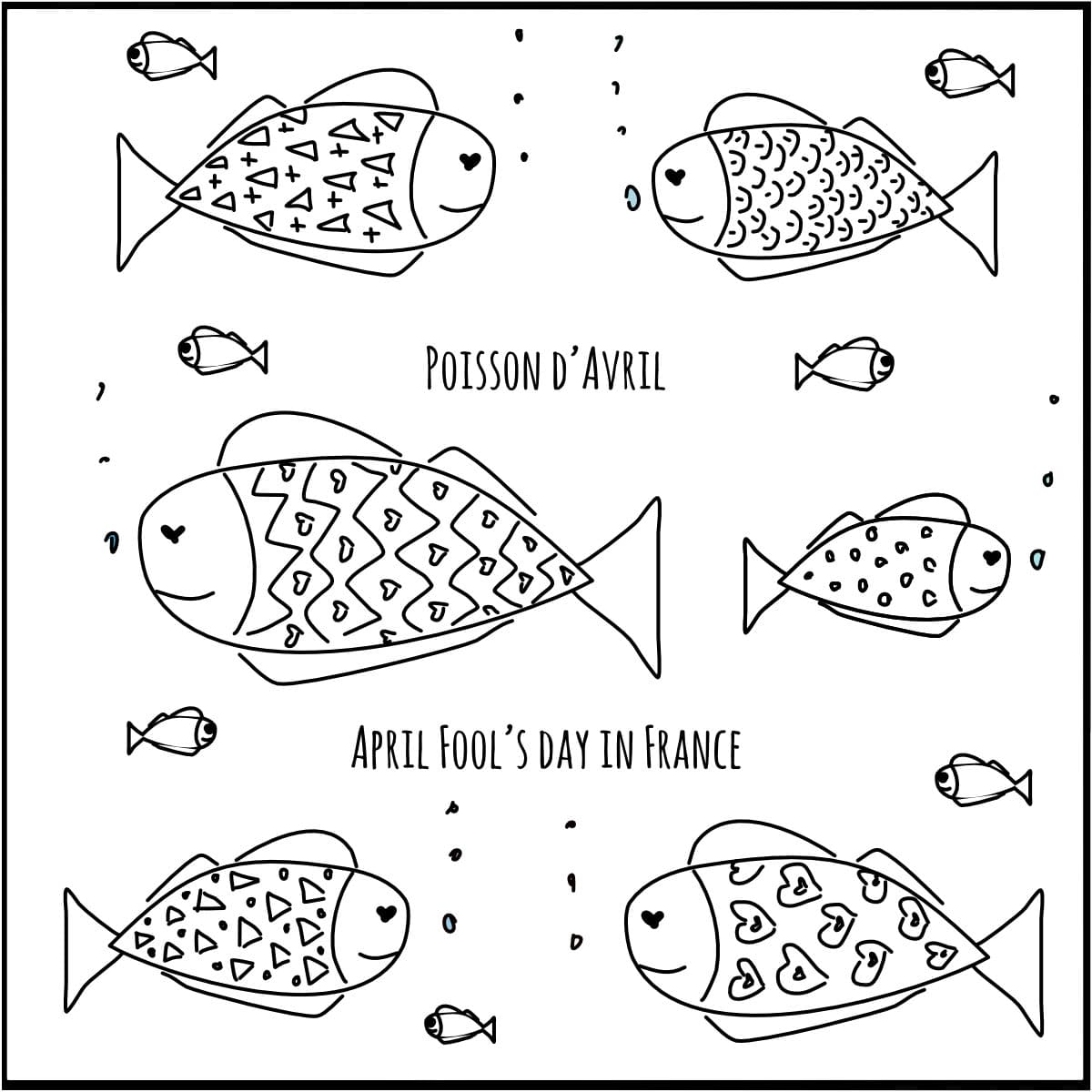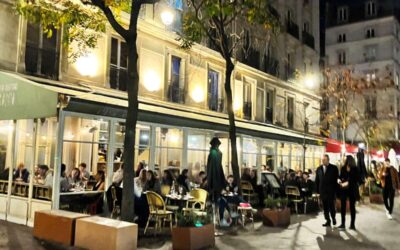April fool’s day doesn’t have a special name in French; which is not to say that it is not celebrated. Known as “1er avril” or “premier avril“, it simply means the 1st of April.
Nonetheless, it is believed that the tradition of merriment on April Fool’s actually originated in France. While there is no official proof, legend has it that the roots of this quirky day that is celebrated all over the world, may have emerged from deep in the heart of French history.
French Origins of April Fool’s day
The origin of the tomfoolery is unclear, but some historians believe that the pranking started by accident in 1564. This was the year when France switched away from the Julian Calendar to designate January 1st as the start of the New Year.
In the Middle Ages, there was not a standard start to the New Year. Many French cities and regions followed their own traditional calendar and the New Year began anywhere between Christmas, the day of Easter, or March 25.
March 25th was particularly popular as the date according to the old Julian calendar from Rome that had been created centuries earlier by Julius Caesar. The 25th of March was also the date of the Feast of the Annunciation, when Christians believe that the Virgin Mary was visited by the angel Gabriel and told that she would be the mother of Jesus Christ, the son of God.
As such, March 25th was already a holiday and associated with the tradition of exchanging gifts and the celebratory period would continue until April 1st.
As this was rather confusing for different cities to have different starts of the New year, French King Charles IX decided, by the Edict of Roussillon in 1564, that the year would henceforth begin on January 1. The 1st of January was chosen as it marked the lengthening of the days, instead of the end of March, which marked the arrival of spring.
For Charles IX, springtime was for planting crops, not for taking 6 days off to celebrate the New Year. (Young Charles IX was merely 14 years old at the time, so it was actually his mother Queen Catherine de Medici in her capacity as Regent who came up with this.)
A few years later, the Catholic Pope Gregory XIII agreed, and extended the measure to all of Christendom with the adoption of the Gregorian calendar in 1582.
According to legend, many people had difficulty adapting to the new calendar, while others were unaware of the change and continued to celebrate on April 1 according to the old tradition. To make fun of them, some took the opportunity to tell silly stories for fun. Over time, April Fool’s day became a day for playing jokes.
April Fool’s Day is now widely celebrated around the world, with various countries such as the United States, Germany, and the United Kingdom having adopted the custom.
Why do they use fish?
“Poisson d’Avril” in French translates to “fish of April” and there are many questions as to why the French April Fool’s day refers to fish, while the English one does not.
There are believed to be various reasons for this, from the historical to the religious. Historically, fishermen were discouraged from fishing during April because it was the breeding period of fish. It became a joke to send someone to buy fish at the market when it was out of season.
This time of year is also the period of Lent, a fasting period where many Christians gave up meat. Fish however, was still allowed on the menu, making it the reference of choice.
In addition, Friday, April 1, AD 33, is believed to be the date that Jesus Christ was crucified on the cross (using the Gregorian calendar). Early Christians used to identify themselves with the sign or symbol of the fish, as a way to escape persecution.
Whatever the reason, this fishy tradition is here to stay. After the joke, the French yell is “Poisson d’Avril!”!
Fake stories in French media
These days, April Fool’s day in France has become widely celebrated by the media. It’s an excuse to write a fake article or news piece to get people talking. Some of the most famous jokes played by the French media on April Fool’s day include:
- 1970 – France Inter announces that the Montparnasse tower is too high for town planning regulations and that it will therefore have to see its top floors removed.
- 1986 – The French television news announces to viewers that we are going to move the Eiffel Tower because the Seine makes it move.
- 2009 – Famed tv presenter David Pujadas of France 2 presents a report about the wind mills which slow down the rotation of Earth.
- 2014 – France Inter announces in its 8 o’clock news that due to the budgetary costs it generates, the mayor of Paris, has decided to sell the Eiffel Tower to Qatar.
- 2020 – French media reported that the famous Tour de France bicycle race would be taking place in South Korea instead of France.
Even the French government officials have gotten in on the act:
- 1972 – the Minister of Health at the time announced on France 2 television that it was henceforth forbidden to smoke in public places. This hoax becomes reality 35 years later.
- 2010 – The site of the French Ministry of Defense announces that the French Navy will use octopuses for its special forces
As you can see, the tradition lives on strong in France. So if you see a questionable story in French on April fool’s day, look for a small fish reference or symbol which will give the game away.
Children’s pranks
While it may mostly be the media in France that play pranks on April fool’s day, this is a day that is mostly celebrated by young children. The French tradition on 1er Avril is to draw a paper fish and color it, and then discreetly stick it on the back of a teacher or parent. Or anyone else for that matter.
As you can imagine, there is a lot of giggling involved, especially among the maternelle and crèche crowd, as they try to trick their friends and elders while yelling “poisson d’avril”! Older kids do as well, as well as the odd adult, however not quite as often. But it is still a fun tradition that occurs every year, trying to catch that certain someone off guard.

If you would like to download the printable, you can do so below. And if you enjoyed that article, you may like to read more about other French holidays and events. A bientôt!





